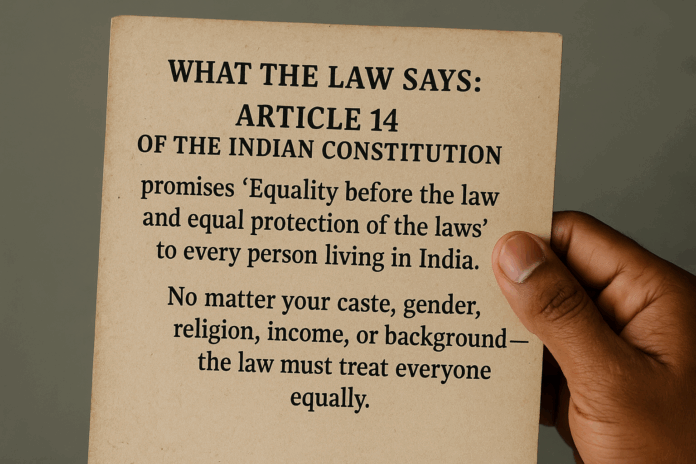What the Law Says:
Article 14 of the Indian Constitution promises “Equality before the law and equal protection of the laws” to every person living in India.
No matter your caste, gender, religion, income, or background — the law must treat everyone equally.
✅ What This Means in Simple Terms:
-
If a poor farmer and a rich businessman break the law — both must face the same justice.
-
If a woman is harassed, she deserves the same protection as anyone else.
-
If someone is treated unfairly because of caste or religion, it is a direct violation of Article 14.
But Is Equality Really Happening?
Despite this strong law:
-
VIPs often get special treatment in jails, courts, and hospitals.
-
Marginalized communities face discrimination in police stations, schools, and public services.
-
Ordinary citizens struggle for justice, while powerful people walk free.
This is not just unfair — it’s unconstitutional.
How Citizens Can Use Article 14
-
Ask for Equal Treatment
If you’re denied a government service or harassed unfairly, cite Article 14 in your complaint. -
File RTIs
Ask why one person got a benefit while another didn’t — whether it’s land, ration cards, or police response. -
Take Legal Support
You can go to court, human rights commissions, or media if you’ve been treated unequally.
Final Message
“No one is above the law — and no one is below protection.”
That’s the spirit of Article 14.
But laws only work when people know them, speak up, and demand their rights.
Let’s build an India where equality isn’t just written in books — but seen in every village, city, and courtroom.










